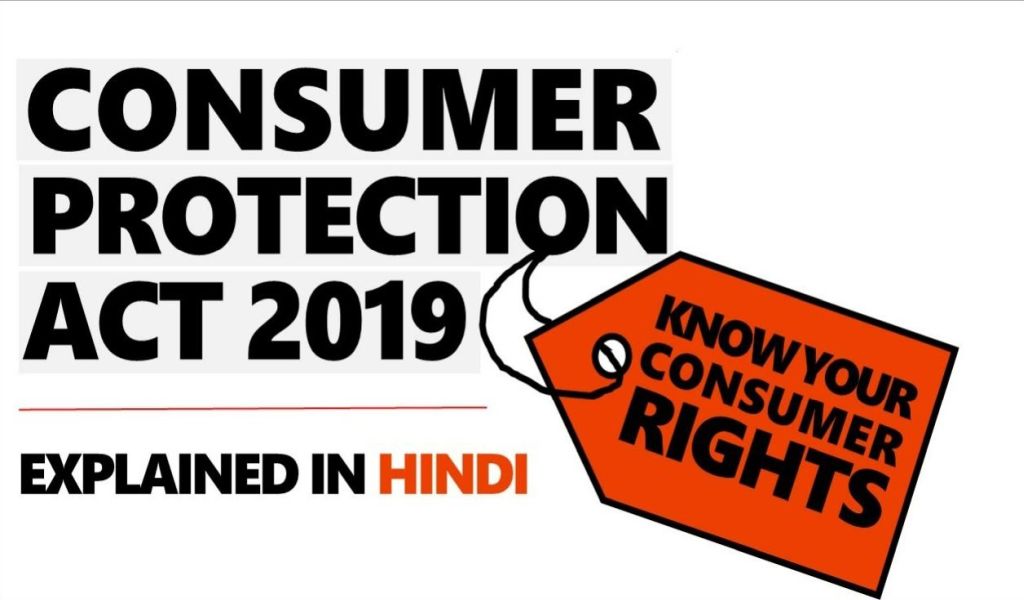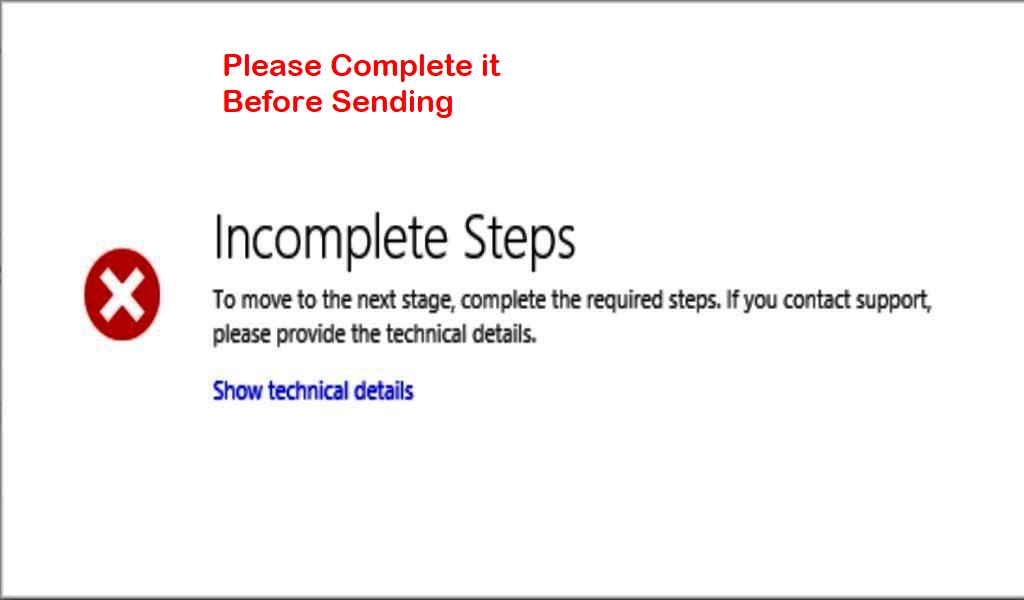Complaint Under Consumer Protection Act 2019
Here is the procedure to file a Complaint under Consumer Protection Act 2019. To achieve this goal a step by step method explains the knowhows of filing a Complaint under Consumer Protection Act 2019.
The Consumer Protection Act, 2019 provides for efficient and effective settlement of consumer disputes while promoting the interest of the consumers. The introduction of online filing of complaints and meditation proceedings is a step towards speedy disposal of consumer cases and is a greater step towards digitization of consumer disputes.
Mechanism for filing complaints:
Under section 2 clause 6 of CPA, 2019 complaint is defined as:
Any allegation in writing, made by a Complaint under Consumer Protection Act 2019 for obtaining relief provided under the act in case of unfair trade practices, defects in goods, deficiency in service, excess price of goods and services, selling of hazardous goods and product liability
Who can File a Complaint?
A Complaint under Consumer Protection Act 2019 can be filed before designated authorities by:
- A consumer
- Any voluntary consumer association registered under any law for the time being in force
- The Central Government or any State Government
- The Central Authority
- One or more consumers, where there are numerous consumers having the same interest
- In the event of a consumer’s death, his legal heir or representative
- In the case of a juvenile, his parent or legal guardian
It is to be noted, there is no need for an advocate to appear in consumer court. Consumers can file and represent their complaints themselves or via a representative.
Where to File complaint:
A Complaint under Consumer Protection Act 2019 can be filed in form of writing or online via a portal provided by the Government.
Its URL is https://consumerhelpline.gov.in/
Or it can be filed through the mobile apps launched by the government of India like NCH app, Umang app or Consumer app.
Fees of the complaint
The status of a complaint can be checked online and the fees for submission of the complaint can also be submitted through an online payment portal.
Important Things to Check when filing consumer complaints:
Issuance of notice
It is recommended that a notification be sent to the opposing party before filing the complaint, outlining the defects/deficiencies in the products or services offered. If the parties are unable to reach an agreement, the complainant may submit a complaint with a jurisdiction authority/forum.
Jurisdictions
Pecuniary jurisdiction
The pecuniary jurisdiction limit has been modified under the CPA, 2019. According to the new statute, the pecuniary limitation bar is as follows
- District Commission: Amount not exceeding 1 crore
- State Commission: 1 Crore – 10 Crore Rupees
- National Commission: Amount exceeding Rupees 10 Crore
Territorial jurisdiction
As per the CPA, 2019 a complaint can be filed where the consumer resides or personally works for gains As well as the place where the opposite party resides or carry-on business. The complaint can also be filed where the cause of action, wholly or in part, arises.
Submission of Complaint
A Complaint under Consumer Protection Act 2019 can be submitted either online or in person. It might be submitted in person by the complainant or by his representative. It can also be sent by registered post with the court fee.
Three copies of the complaint are required to be submitted out of which one is retained for the official purpose, one is forwarded to the opposite party and one is for the complainant. If the number of opposing parties is increased, more copies of the complaint are necessary.
Contents of the Complaint
The Complaint under Consumer Protection Act 2019 should include the following information:
- Name, description, and address of the complainant
- The name, description, and address of the opposing party or parties
- Facts about the complaint, such as when and where it occurred
- Documents to back up allegations, if any
- Specifics of the dispute: a flaw in the goods/a deficiency in the service
- The relief being sought
Limitation for filing Complaint/Appeal
The complaint must be filed within two years of the date the cause of action arose. This would be two years from the day the deficit in service or defect in products was discovered. This is also known as the statute of limitations for filing a complaint under consumer court.
Appeal before state commission would have to be filed within 30 days from the order of District commission and appeal before National commission is to be made within 30 days from the order of the lower forum and for an appeal before Supreme court against the order of Nation commission is to be within 45 days.
Court Fees
The court fees remain nil up to consideration of 5 lakh Rs involved before the district commission. In respect of state commission, the court fees range from ₹.2,500 to ₹.6,000 Rs whereas court fees in the case of the national commission it is ₹.7,500
In the event of an appeal before the State Commission or the National Commission, a deposit of 50% of the entire award amount passed by the lower commission is required.
Alternative Dispute Mechanism
With the advent of the procedure of mediation proceeding under CPA,2019. it is possible to resolve consumer issues more quickly. If the commission believes there is a prospect of resolving the issue between the parties, the case might be referred to the Mediation Cell or Either party may submit a formal request to the District, State, or National Commission
Procedure to be followed
The procedure to be followed might be mutually agreed upon by the parties. If the parties are unable to reach an agreement, the mediator will follow the procedure outlined below
- The mediator will choose the time, date, and location where all parties must be present.
- Mediation proceedings may be held in the Mediation Cell connected to the District, State, or National Commission, and joint/separate sessions of the parties may be held.
- Within 10 days following the session, both parties must submit a Memorandum of Concerns to the mediator and other parties involved, outlining the issues that must be resolved.
- The mediator shall encourage a consensual resolution between the parties, convey the parties’ points of view, and aid the parties in resolving the issue using the necessary information supplied to the mediator by both parties. The parties should achieve an acceptable solution within 30 days.
- If the parties reach an agreement, it must be reduced in writing and signed by both the parties and the Mediator. The mediator must also provide a thorough report on the settlement to the relevant commission.
- If the parties are unable to achieve an agreement, the Mediator must submit a report to the commission outlining the reasons for the failure to reach an agreement.
Related Pages

Distance Advocacy For You
हर व्यक्ति को सही गुणवत्ता-पूर्ण और Qualitative Advocacy मिले इसके लिए हम लोगों ने एक नया तंत्र विकसित किया है - Distance Advocacy का। Distance अर्थात दूरस्थ, दूर से और Advocacy अर्थात वकालत या वकील द्वारा सहायता। आप दूर होकर भी उतनी ही गुणवत्ता वाली Advocacy प्राप्त कर सकें जितनी दिल्ली में बैठकर यहाँ की बड़ी कंपनियाँ या ‘दिल्लीवाले’ कर पाते हैं। और यह हम अपनी Distance Advocacy से आपको उपलब्ध करवा पाते हैं।.

Intensive Legal Consultation
आपके कुछ खास सवाल हों, जिनके सटीक उत्तर कोई भी आपको ना दे रहा हो तो ऐसे में आप को हमारी INTENSIVE CONSULTATION लेनी चाहिए। आप को अपने सवाल अपनी INTENSIVE CONSULTATION से पहले हमें भेज देने चाहिएँ। जैसे ही आप फीस जमा करवा के उसका स्क्रीनशॉट हमें भेजते हैं तो हम आपकी Intensive Consultation का समय बता देते हैं। INTENSIVE CONSULTATION में संदेह मिटने का एक अनूठा अनुभव होता है।

Winning Cross Examination
आपकी क्रॉस एग्जामिनेशन की तारीख से कम से कम पंद्रह दिन पहले आपका अनुरोध हम तक पहुँच जाए। क्रॉस हमेशा उस बयान का होता है जो कोर्ट में जज के सामने दिया जाता है। पहले के बयान चाहे वह Sec. 161 या Sec. 164 CrPC का हो वे सब कोर्ट वाले बयान में लीन हो जाते हैं। हमारे Cross Examination में पूरे निर्देश लिखे होते हैं कि क्या सवाल पूछना है, कैसे Exhibit करवाना है, कैसे Document का नंबर डालना है, कैसे Confront करवाना है।
स्वयं को रजिस्टर करें
खुद को रजिस्टर करें, अपने मित्रों को करवाएँ।
यदि कोई शंका, डाउट हो तो उसे क्लियर करें।
अपने सभी कागज़ात एक जगह इकट्ठे करें।
मैस्सेज कंपलीट भेजें
मैस्सेज कंपलीट भेजे ताकि आप तक सपोर्ट, समाधान, परामर्श को भेजा जा सके।
मो. नंबर भी चैक करके भेजें।
हम आपका कोई डेटा अपने पास नहीं रखते हैं।
अपने कागज़ात भेजें
फोन पर जो भी तरीका बताया गया हो उससे अपनी पूरी फाइल PDF बनाकर हम तक भेजें।
जो भी दूसरे जरूरी कागजात हैं जैसे कि बचाव के कागजात, उनकी कॉपी भी भेजें।
हमसे मीटिंग करें
फाइल भेजने के बाद तत्काल मीटिंग का समय लें और मिलें।
फाइल और केस के हर बिंदु पर विस्तृत चर्चा करें और अपने केस की रणनीति बनाएँ।
यह रणनीति आपकी जीत के लिए जरूरी होती है।






